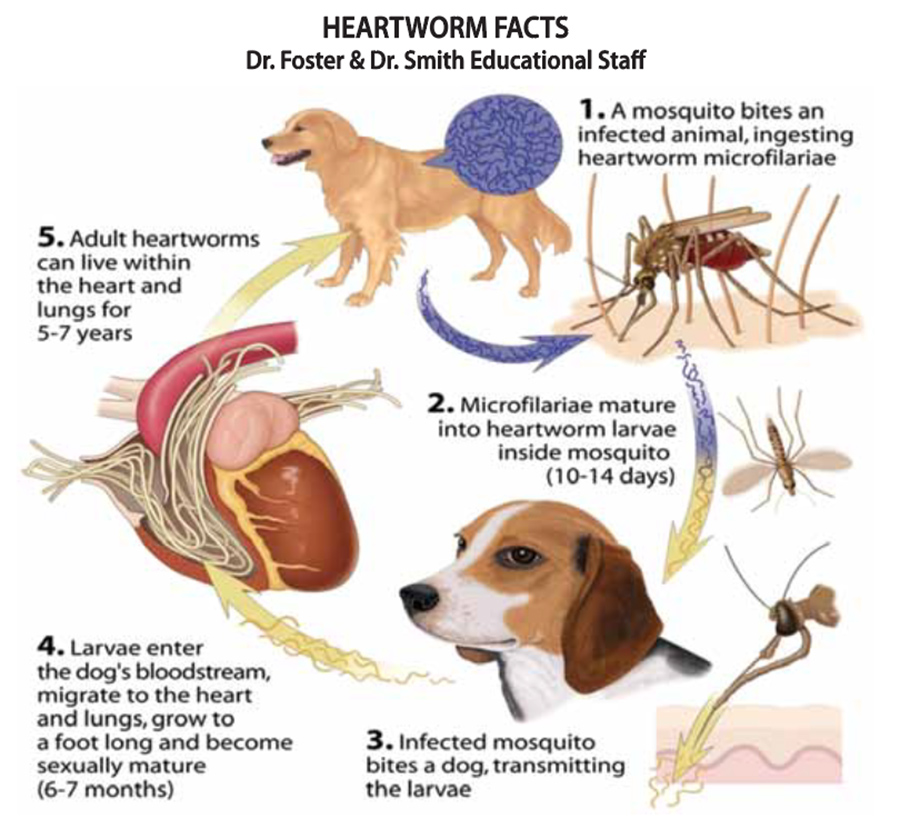Heart Worm Facts
The mosquito is the only known vector for transmitting heartworm.
The average lifespan of heartworms in untreated pets is 5-7 years in dogs and 2-3 years in cats.
Virtually 100% of dogs exposed to infective heartworm larvae become infected; in cats, this number drops to 61% to 90%.
According to the Companion Animal Parasite Council, mature heartworms in cats average 21 cm (about 8.5”)in length, while those in dogs average longer than 26 cm (1 0″).
Heartworm infection in cats exists everywhere heartworm in dogs exists.
A study performed at North Carolina State University indicated that 25% of cats infected with heartworms were solely indoor cats.
Heartworms may infect more than 30 species of animals including coyotes, foxes, wolves and other wild canids, domestic cats and wild felids, ferrets, marine mammals, and humans.
Prevention is far more effective and less costly than treatment.
More than 70 species of mosquitoes are capable of transmitting heartworm.
Heartworms cannot be passed directly from one pet to another.
Many dogs recover from heartworm disease with appropriate treatment, but heartworms cause severe disease and sometimes permanent damage.
In cats, there is no effective treatment to kill heartworms.
Animals will usually test positive for heartworm disease approximately 6-8 months after they were bitten by an infected mosquito.
It is much more difficult to diagnose heartworm disease in cats than in dogs.
Heartworms affect cats differently than dogs, but the disease they cause is equally as serious.


